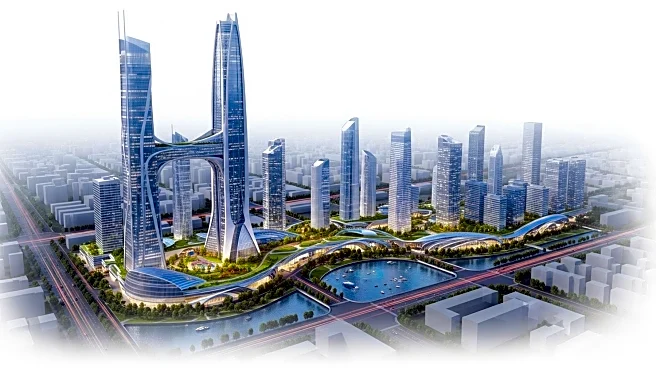What's Happening?
The concept of 'omni cities' is being proposed as a solution to the inefficiencies and fragmentation seen in current smart city models. These AI-driven urban ecosystems aim to integrate all elements of civic life, from emergency response to public transportation, into a unified system. The need for such integration has been highlighted by recent natural disasters, such as the flash floods in Central Texas, where communication breakdowns exacerbated the crisis. Omni cities would operate as cohesive organisms, using AI to process data in real-time and coordinate responses to various challenges, including climate disasters and cyber threats.
Why It's Important?
The shift towards omni cities represents a significant evolution in urban planning and governance, with the potential to enhance resilience against a range of modern threats. By ensuring interoperability between different systems and technologies, omni cities could improve public safety, reduce response times during emergencies, and optimize resource allocation. This approach also addresses the limitations of current smart city initiatives, which often fail to serve all community members equitably. The development of omni cities could lead to more inclusive and efficient urban environments, benefiting residents and local governments alike.
What's Next?
Local governments can begin transitioning towards omni cities by establishing interoperability standards for new technologies and prioritizing deployments in underserved areas. This process involves creating transparent audit systems for automated decisions and ensuring that all components of the urban ecosystem can communicate effectively. As cities adopt these practices, they will be better equipped to handle emerging challenges and set a precedent for future urban development. The success of omni cities will depend on collaboration between public and private sectors, as well as ongoing investment in infrastructure and technology.
Beyond the Headlines
The move towards omni cities raises important ethical and governance questions, particularly regarding data privacy and the equitable distribution of resources. Ensuring that AI-driven systems do not exacerbate existing inequalities will be crucial. Additionally, the integration of AI into urban infrastructure must be accompanied by robust oversight mechanisms to prevent misuse and ensure accountability. As cities become more interconnected, the potential for cyber threats also increases, necessitating enhanced cybersecurity measures.










